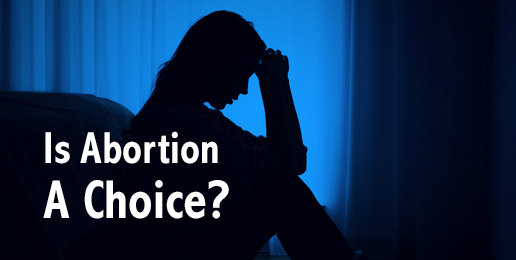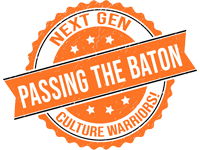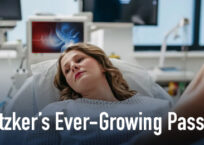
In a recent article, I addressed the claim that abortion gives women the power to avoid a family burden when they don’t want it. I showed the other side of the story that is rarely, if ever, mentioned: accessible abortion strips women of the power to demand family security when they need it.

Drawing analysis from a 1994 study co-authored by the current (pro-choice) U.S. Treasury Secretary Janet Yellen, I explained how an industry based on “choice” doesn’t always give that choice to the mother.
Abortion spawns a system that sometimes gives new choices to abusive actors influencing a woman’s life instead.
But is this just conjecture, or does this play out in the data?
Here’s one way to find out: let’s say that the abortion industry really were an industry based on free and informed choice. We would expect women to choose abortions without much pressure from other people or surrounding circumstances. (After all, a “choice” implies that you made the decision, not that you were pushed into it by someone else.)
But this is not what the data shows. A recently published study in the medical journal Cureus found that over half of women surveyed experienced “high levels” of pressure to have their abortion.
In January of this year, researchers David Reardon and Tessa Longbons published a study based on a survey given to about 1000 American women, all between the ages of 41 and 45. They especially focused on the approximately 200 women in the group who had undergone an abortion in the past, each of whom were asked a series of questions about their abortion.
Did they feel pressure to abort from their male partner? From a family member? What about from somebody else? Did financial concerns pressure them to abort? Did they experience pressure from other circumstances? Accounting for the nuance in personal questions like these, the survey measured women’s responses on a scale from 1 to 100.
Brace yourself for what Reardon and Longbons found.
They discovered that among the women who had had abortions, close to 70 percent of them admitted the procedure was coerced, pressured, or inconsistent with their own values or preferences. And zeroing in more specifically, 61 percent of the women said they experienced “high levels” of pressure to have the abortion. Not just “moderate” or “substantial,” but high. On a scale from 1 to 100, their answers were above 80.
How much of this was pressure from loved ones?
On a closer look, Reardon and Longbons found that 15 percent of women surveyed experienced high levels of pressure specifically from their male partner (remember Janet Yellen’s analysis?), and 19 percent of women surveyed experienced high levels of pressure from their family.
This may seem small, but 15 percent is still a large number—imagine if your dentist intimidated only 15 percent of his patients into pulling their front teeth out. But even if it still seems small, keep in mind that these “highly pressured” cases are surrounded by less severe forms of pressure.
Taking these into account, 46 percent of women surveyed experienced at least modest pressure from their male partner, and 48 percent experienced at least modest pressure from family. In other words, a significant fraction of the women surveyed experienced high levels of pressure from partner and/or family, and almost half were pressured at least somewhat to have their abortion.
To be fair, boyfriends and family were not the most common sources of severe pressure for most of the women studied; much larger percentages experienced circumstantial or “other” pressure. And so, the comparison to Yellen’s study ends here.
But this only drives a broader point home further; if male partner and family pressure made up the smaller categories of pressured abortions, take a look at the larger categories.
Reardon and Longbons found that 30 percent of women surveyed experienced “high levels” of financial pressure (73.5 percent, counting anything between “modest” and “high,”) and 41 percent of women surveyed experienced “high levels” of other circumstantial pressure (85 percent, counting anything between “modest” and “high”).
If “choice” means a free decision made without any external pressures, then the abortion industry is earning failing grades. [Note: the authors admit that their findings do have some limitations; see here for their explanation.]
Again, to be fair, the abortion industry could probably reinterpret at least some of the financial and “other circumstances” as “legitimate reasons” for why women need the right to choose. Every choice is always a response to pressures of some kind, they might say—women may need to abort babies that they can’t care for, which is why they need the choice.
But that doesn’t remove the fact that if women had not experienced those pressures—if they had had access to adequate financial support, for example—they might not have chosen to abort.
Deep down inside, women may want to choose life, but they may feel like they have to choose abortion because of their circumstances. This is a superficial choice dictated by circumstances, rather than a genuine choice dictated by the woman’s true desires.
After all, people rarely say they were “pressured” to do something if they already deeply desired it anyway.
So, abortion still provides an easy outlet for circumstances—rather than a mother’s true desires—to make the decision between her baby’s life or death. Therefore, the solution should be to help women by removing that circumstantial pressure, not by giving women an option that allows circumstances to cast the deciding vote between life or death for their baby.
All in all, we see that the dynamics surrounding the “choice” of abortion—hinted at by Janet Yellen so many years ago—are playing out in women’s lives as we speak.
Abortion may give options to women, but it also gives options to abusive partners and unsympathetic family members to pressure the mother to abort her baby.
The industry cannot brand itself as the “crusaders for choice” as long as such significant numbers of women feel pressured into such choice.
























